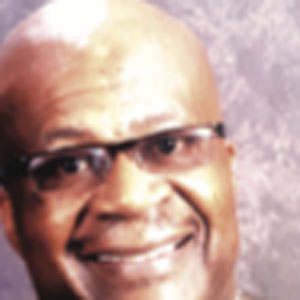Background Scripture: Matthew 12:1-32
Lesson Text: Although the Gospel of Matthew does not identify its author explicitly, the early church attributed it to Matthew, one of the original 12 apostles chosen by Jesus. His given name was Levi (Mark 2:14, Luke 5:27-29), being named after one of the 12 sons of Jacob. Levi was the patriarch of the priestly tribe. The name Matthew is from the Hebrew language and means “gift of the Lord.” Matthew’s chosen profession was to be a publican (tax collector). This means that he worked for the hated foreign overlords, the Romans who occupied Palestine. His job was to squeeze taxes from his fellow Jews to appease the oppressors, and he was allowed to dip into this money flow to enrich himself.
Kingdom and Healing (Matthew 12:22-24):
Three Maladies Cured *v. 22).
v. 22. “Then was brought unto him one possessed with a devil, blind, and dumb, and he healed him, inasmuch that the blind and dumb both spake and saw.”
The healing of a blind and demoniac has its place here not for its own sake, as a miracle, but simply as the introduction to another conflict between Jesus and the Pharisees. It is a story of wicked calamity repelled. The transition from the fair picture of the true Jesus to this hideous Pharisaic caricature is highly dramatic in its effect.
Two Reactions Provoked (vv. 23-24).
v. 23. “And all the people were amazed, and said, Is not this the son of David.”
At the cure, it was such an instance of divine power and so glaring a proof, that the person who wrought it was more than a man, and must be the Messiah. This is to be understood of the greater part of the people, not of every individual and of the common people only, for it had a different effect upon the Pharisees, so hereafter appears, but in these it not only produced admiration, but conviction, faith, and confession.
v. 24. “But when the Pharisees heard it, they said,, This fellow doth not cast out devils, but by Beelzebub the prince of the devils.” Jesus replied that if the prince of demons used his own power to cast out demons, he would be creating civil war in his own kingdom. He would be destroying himself. The only way a strong man can be defeated is if a stronger man overpowers him. In casting out demons, Jesus showed that he was stronger than Satan. His reign, which would result in the destruction of Satan had begun.
Kingdom and Unity (Matthew 12:25-30):
Division’s Result Is Failure (v. 25).
v. 25. “And Jesus knew their thoughts, and said unto them. Every kingdom divided against itself is brought to desolation; and every city or house divided against itself shall not stand.” Not that civil disputes destroy a nation disunited, rent by factions, in the presence of a common enemy must fall. Here Satan’s kingdom is regarded as warring against the kingdom of God.
Kingdom and the Spirit (Matthew 12:31-32):
Blasphemy (v. 31). “Wherefore I say unto you, All manner of sin and blasphemy shall be forgiven unto men: but the blasphemy against the Holy Ghost not be forgiven unto men.” The conclusion of the whole matter is, you’re on Satan’s side, and knowingly on Satan’s side, in this decisive struggle between the two kingdoms, this is blasphemy against the Holy Ghost, this is an unpardonable sin.
Opposition (v. 32).
v. 32. “And whosoever speaketh a word against the Son of man, it shall be forgiven him: but whosoever speaketh against the Holy Ghost, it shall not be forgiven him, neither in this world, neither in the world to come.” To speak against the clear voice of the Holy Ghost within the heart-wilful sin against knowledge . Jesus, who saw the heart, knew that the P harisees were insecure in the charge which they brought against Him. They were attributing to Satan what they know to be the work of God. Their former attacks against the Son of man had excuse, for instance, they might have differed conscientiously on the question of Sabbath observance, now they have no excuse.
References: Cambridge Bible for Schools and Colleges, Gills Bible Expositor, Studylight Bible Commentary, International Sunday School Lessons, KJV 2022-2023











